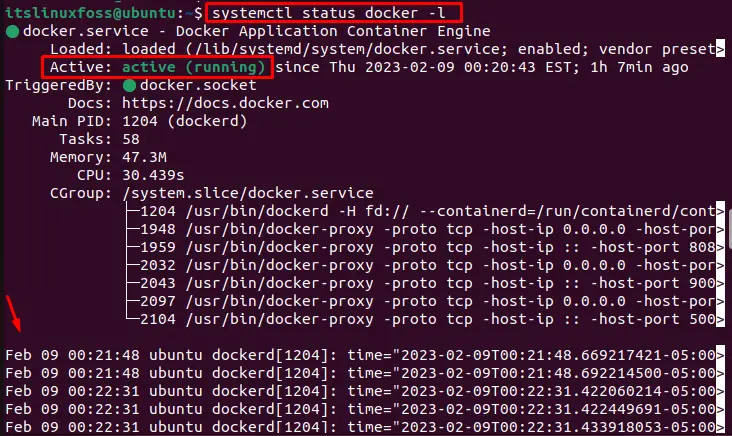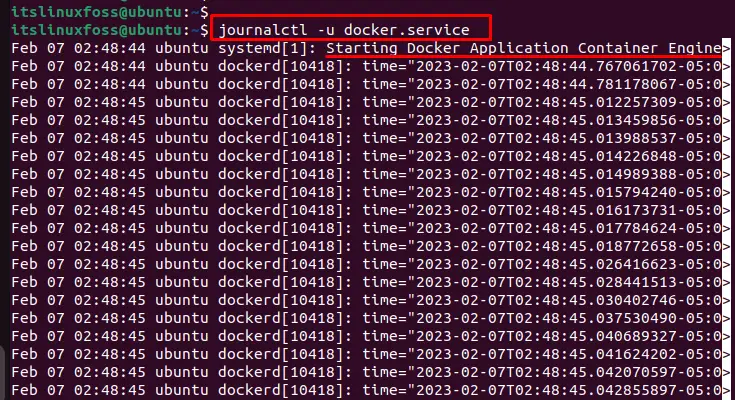The “full log” is a detailed report of the current state and activity of a system service in a Linux system that uses Systemd. The purpose of the full log is to provide information about the service’s operations and any problems or issues it might be encountering.
This article will explain how to visualize the full log from the systemctl status services.
How to See Full Log from Systemctl Status Service?
The “systemctl status” command is utilized to check the status of a system service in Linux systems. This is beneficial for debugging and troubleshooting problems with the service.
To see the full service log, run the following command:
$ systemctl status service_name -l
Replace “service_name” with the name of the service. The “-l” option is used to display the full log.
See Full Log of Particular Services
In our case, specify the “docker” services to visualize the full log information from the systemctl status services:
$ systemctl status docker -l

The log includes information such as:
- The name with a description of the service such as “docker.services”.
- The date and time “Thu 2023-02-09 00:20:43 EST” the service was last loaded and started.
- The process ID (PID) of the service “1204” main process.
- The number of tasks “58” being performed by the service.
- The control group (CGroup) to which the service belongs such as “system.slice/docker.service”.
- A log of events and messages related to the service, including the time and date of the event, and the process ID.
By reviewing the full log, system administrators get information about what the service is doing and identify any issues that might be impacting its performance.
Alternative Method: Using “journalctl” to See Log of Particular Service
The “journalctl” command also assists users to display the full log of the particular service of the system. It provides log events about the service with time and date. In our case, specify the “docker.services” to see the log information:
$ journalctl -u docker.services

The figure shows a log of events and messages related to the “docker.service”, including the time and date, with the process ID “10418”.
Conclusion
To see the full log from systemctl status services, execute the “systemctl status service_name -l” command. It displays the name and description of the particular service when it was last loaded and started, the main process ID, the number of tasks, and the control group.
This article has briefly explained how to see the full log from the systemctl status service.
